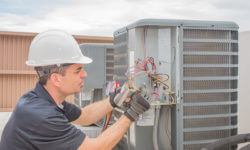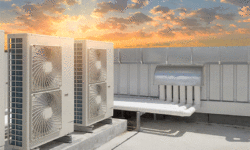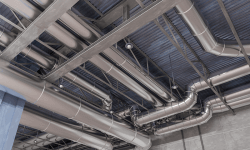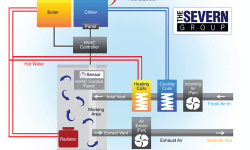Room temperature is always a hot topic in the office. No matter what you set the workplace thermostat to, it can seem impossible to please everyone. Someone is always too hot or too cold. Even so, it’s very important to get it right, because research shows that temperature has serious effects on work performance. Turns out, it’s far more than just a comfort issue. So, what is the optimal workplace temperature? Let’s dive into the science to find out.
Read more →If you’re in the market for a new commercial HVAC unit, you’ve likely come across dozens of HVAC acronyms. Just like any other line of work, the HVAC industry uses hundreds of acronyms. And, sometimes this can make shopping for a new unit confusing. But, have no fear – we’re here to help by decoding 10 common HVAC acronyms.
Read more →Believe it or not, summer is just around the corner. That means it’s the perfect time to perform some preventative maintenance to get your HVAC system ready for warmer weather. Need a reminder of what springtime HVAC maintenance entails? Here are some commercial HVAC prep tips to get you started.
Read more →At The Severn Group, we see a lot of commercial HVAC problems. Businesses all throughout Maryland and the Washington metro areas call on us to maintain and service their systems. As such, our team has seen it all, from the minor problems to the major ones. Here are some of the most common issues that facility and operations managers may run into.
Read more →Looking for ways to go green? Eco-conscious commercial owners prefer the Hydronic heating system to keep their building comfortable and healthy. Hydronics provide a smart heating alternative to help reduce energy costs and conserve resources when compared to other HVAC systems. If you’re interested in going green, here’s what you need to know about Hydronic heating systems.
Read more →When it’s time to replace or install an HVAC system in your building, there are several options to consider. One of those options is called an RTU HVAC system. It still provides heating and cooling, along with the same air quality benefits as any HVAC system. What makes an RTU system different, however, is its location and setup. Here’s what you need to know about RTU HVAC systems and how to tell if it’s the right choice for you.
Read more →While you may take care of maintenance, you might also be considering how long the system will last. When was the last time it was replaced? How many years can you honestly expect to get out of your HVAC system? These questions are something to keep in mind when you own a business. Here’s a look at the factors that play a role in the commercial HVAC equipment lifespan.
Read more →Air ducts serve as a passageway to allow air from the heating, ventilation and air conditioning (HVAC) system to transfer to various areas of the home or business facility. Considering that air ducts contribute to the air that we breathe, this system should be appropriately installed and continuously maintained.
Read more →The term HVAC stands for heating, ventilation and air conditioning, a system used to control the temperature in a space as well as humidity and quality of air. In a big building, the system needs to be able to function based on comfort need as well as meet the size of the space. The HVAC system must transfer heat and moisture into and out of the air to control the temperature level, as well as the level of air pollutants. This is done by removing the pollutants directly or by diluting them.
Read more →In heating, ventilation, and air conditioning (HVAC) there are systems that cool and heat forced air. Forced air is a central heating system that uses air as its medium to transfer heat. This system relies on vents, duct work, and plenums for building air distribution that is separate from actual cooling or heating systems.
Read more →









